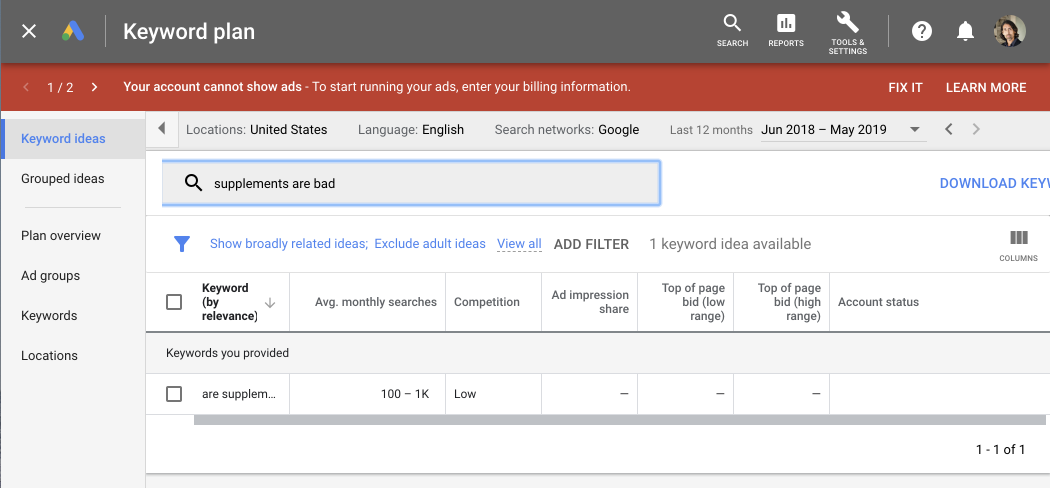Costco recalls certain lots of two ready-to-eat deli products
11/21/2025 / By Olivia Cook

- The Street reports that Costco pulled two ready-to-eat deli favorites after its supplier, Ventura Foods, found possible plastic bits in single-serve dressing packets. What sounds like a small mistake exposes a far bigger pattern of contamination across the U.S. food supply.
- Analysis reported by Food Safety Magazine shows allergens, bacteria and foreign objects now account for the vast majority of recalls, with the most serious Class I recalls rising steadily. More recalls mean more risk, more waste and more consumer anxiety.
- Social media comments from shoppers express frustration and retailers like Costco must balance transparency with damage control. Behind the scenes, recalls halt production, force suppliers to dump huge amounts of otherwise usable food and strain already-thin supply chains.
- FoodPrint notes that when a single ingredient is contaminated, entire categories of food are trashed “just in case.” That precautionary approach can send tons of perfectly edible food straight to landfills, multiplying the environmental and economic toll.
- Shoppers checking lot numbers, using recall apps, reporting issues and understanding expiration labels can prevent illness, reduce waste and save families money. In a year when Americans waste 120 billion pounds of food, according to RTS, small habits matter more than ever.
If you picked up a Caesar Salad or a Chicken Sandwich with Caesar Salad from Costco recently, you may have felt that familiar twinge of worry after hearing the news. On November 7, Costco and its supplier Ventura Foods issued a recall for certain lots of these deli products after learning that plastic fragments might have slipped into the dressing packets. It’s the kind of alert that ruins a lunch plan – and raises bigger questions.
It’s not just the plastic. It’s the fact that recalls seem to be happening all the time.
More than 300 food recalls had already been reported across the United States this year, according to publicly available Food and Drug Administration (FDA) and U.S. Department of Agriculture (USDA) data summarized by outlets covering national recall trends. That included everything from ahi tuna poke with Listeria contamination to pancake sticks containing wood pieces and Prosecco bottles that could shatter without warning. The Street‘s reporting on the latest Costco recall slotted into a pattern that’s beginning to feel less like an exception and more like a “new normal.”
And behind that “new normal” is a story about how food is produced, how safety checks are stretched thin, how waste amounts in silence and how much power we actually have as consumers – often more than we realized.
A nationwide concern
Foreign objects contamination sounds like a rare freak event, but it’s woven into modern food production. Food safety specialists often explain that fragments of plastic, metal, wood and even glass usually come from the wear and tear of industrial equipment or from packaging materials that break down on fast-moving lanes. When machines run all day, every day, parts eventually weaken.
In a small restaurant kitchen, a broken spatula is an annoyance. In a massive food processing facility producing a million units, a chipped component can send microscopic fragments into thousands of packets or containers before anyone notices.
That’s likely what happened at Ventura Foods, the company that supplied the dressing packets for Costco’s salad kits and sandwiches. The discovery of potential plastic fragments triggered an immediate recall – not because every packet contained plastic, but because no one could guarantee which ones don’t.
An analysis reported by Food Safety Magazine found that FDA and USDA recalls increased more than 20% between 2020 and 2023. The sharpest rise occurred in Class I recalls – the most serious category, involving risks that could cause illness or worse.
The primary causes fall into these four categories that food scientists often highlight:
- Allergens: The top cause of food recalls, representing nearly 40% of cases. A missing allergen warning can turn a candy, cookie or sauce into a dangerous product for millions living with food allergies.
- Bacteria: About 21% of recalls come from pathogens like E. coli, Listeria and Salmonella, which can be invisible but dangerous.
- Foreign objects or materials: Roughly 11%, including plastic, metal, wood and glass fragments – even rocks or stones.
- Chemical contamination: Less common but serious, such as sulfites in sauces or in some cases, lead-contaminated ingredients.
Modern supply chains are part of the problem. Food today is highly centralized: One facility can produce ready-to-eat means for half the country. That efficiency is a double-edged sword. When something goes wrong, it goes wrong everywhere at once.
Federal oversight is crucial, but it faces limitations. The FDA and USDA regulate enormous numbers of farms, processors and distribution centers. Food safety advocates often point out that staffing and resources haven’t always kept pace with the complexity of the modern food system.
Inspectors do catch problems – but routine inspections can’t cover every shift, every line, every moment.
The waste we don’t see
One of the quietest consequences of recalls is food waste. FoodPrint has reported that a single recall can cause enormous amounts of perfectly good food to be trashed “just in case.” While the contaminated portion may be small, the uncertainty around distribution and production forces companies to dispose of entire lots.
The U.S. is expected to waste nearly 120 billion pounds of food this year – almost 40% of the national food supply. Food waste generates methane, uses up vast amounts of water and energy and deepens the climate challenges the world is already facing.
Food recalls contribute only a portion, but their impact is concentrated and highly visible. Every time a food recall happens, we lose not just the food itself but the resources poured into growing, processing, transporting and storing it.
Experts emphasize that small, consistent habits make a big difference.
- Stay recall-aware by checking updates from FDA and USDA or by using apps designed to track food alerts and recalls.
- Check for lot numbers and dates on ready-to-eat items and prepared foods.
- Handle food safety at home by washing produce, storing perishables properly and keeping utensils and surfaces clean.
- Report issues if you find a foreign object or suspect contamination. One report can help prevent someone from getting sick.
- Understand labels; knowing that “best by” usually refers to quality, not safety.
- Reduce waste through composting, meal planning and avoiding unnecessary panic discarding when a recall does not apply to the items you own.
“You don’t have to overhaul your life, you just have to stay informed and attentive. In an era when convenience foods are staples of busy lives, the simple act of paying attention to what enters your cart and your kitchen is one of the most powerful health decisions you can make,” BrightU.AI‘s Enoch notes.
Learn more about how foreign objects cause food recalls by watching this video.
This video is from the Daily Videos channel on Brighteon.com.
Sources include:
Submit a correction >>
Tagged Under:
clean food watch, Costco recall, Dangerous, deli products, FDA, food safety, food science, food waste, grocery, Plastic, poison, products, ready to eat foods, stop eating poison, toxic ingredients, toxins, USDA
This article may contain statements that reflect the opinion of the author





















